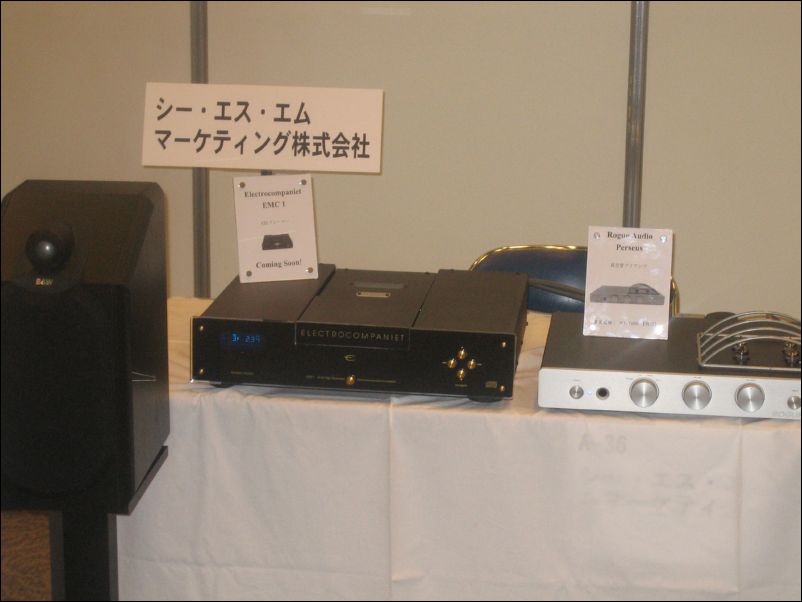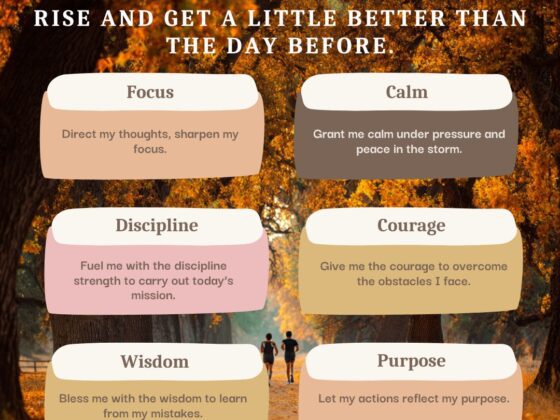“Self-discipline begins with the mastery of your thoughts. If you don’t control what you think, you can’t control what you do.”
Napoleon Hill
I am starting a series as part of The Day Warrior Newsletter dedicated to helping you transform your life in just six months.
Whether you want to boost your career, enhance your well-being, or cultivate new habits, I will provide you with the tools, insights, and support you need to achieve your goals.
The first topic I would like to cover is mastering the art of self-discipline.
Discipline is a foundational element for personal and professional growth. It helps you achieve your goals, build good habits, manage time, and enhance overall well-being.
The most basic example of discipline might be getting up early each day, working long hours to accomplish one’s goals, and facing one’s problems head-on.
Most people fail at self-discipline due to a lack of clear goals, inconsistent habits, and the temptation from short-term dopamine hits. It is easier to binge-watch Netflix for the day than to get the exercise you should be getting instead.
Discipline is the bridge between sovereignty and personal success. It transforms dreams into reality, providing the foundation for self-governance and achieving your highest potential.
I myself am a work in progress and developing method to improve my self-disciple, but I would like you to walk away with the following concepts after reading this newsletter:
- Create Effective Systems
- Prioritize and Execute
- Build Positive Habits
- Embrace Ownership
- Monitor and Adjust
Let’s get started.
Create Effective Systems
Many people focus on setting goals.
Goals are great for setting direction, but they can also prevent a person from ever getting started if obtaining the goal feels like mission impossible.
I do not want to discuss the pros and cons of systems vs goals in this newsletter, but if you want to learn more, read the linked newsletter.
For this newsletter, I will state that effective systems create a structured approach focusing on consistent, repeatable actions rather than specific goals. These systems help drive discipline, not a focus on goals.
This process involves creating systems from habits and routines that are directionally aligned to your long-term goals. You break things down into smaller, manageable steps and try to integrate them into your daily life. The goal is to form repeatable habits that become second nature and drive you towards an incremental path of improvement.
The most common example is having a goal to lose weight.
“I want to lose 30 pounds.”
That is a goal.
The system would be all the small, repeatable steps that get you and keep you there.
Most of us have gone down this path. We spend six months starving ourselves on a fad diet and watching the scale week after week. After six months of binge dieting, we met our goal only to rebound to a weight worse than when we started.
This pattern is familiar to everyone.
The idea of creating effective systems is different.
The goal might be the same, but how we accomplish it differs.
You might start small. You read somewhere that walking is excellent for losing weight. Step one is to start walking every day.
At first, you walk for fifteen minutes a day.
Then, you expand to thirty minutes.
Then you increase to forty-five minutes twice a day.
Then, add a step monitor and get hooked on hitting at least 15,000 steps daily.
Then you have a thirty-day streak, a hundred-day streak, and a 365-day streak.
You have created a walking habit. You are hooked on walking. Even in the rain, sun, or snow, you will find a way to complete your daily walking. The habit has been formed.
What is your new weight after implementing these new habits? Maybe it has not changed yet, but you have created one unbreakable system of habits directly aligned with your goal to lose weight.
What is next? How about eliminating sugary drinks from your diet?
How about reframing alcohol as a poison and eliminating it from your diet?
As these two items become established, you can expand to intermittent fasting.
None of these items alone will lead you to weight loss, but by breaking the goal of losing weight into manageable steps and integrating them into daily life, you are creating the necessary discipline and knowledge to obtain and maintain your goal.
The following items can be used as a guideline to define the critical elements of an effective system.
- Clear Processes. A simple process is the easiest to form a habit around. Complexity is not your friend when establishing a new system or process. The processes should be simple to follow and easy to execute consistently. “I will read three books a week” is not easily repeatable and is challenging to perform consistently. “I will read fifteen minutes a day” or “I will read fifteen pages a day” is a more simplistic process that is easier to execute consistently.
- Habit Formation. Sound systems develop habits that support your goals. Habits are good because they reduce your need for willpower. Habits create behaviors that become automatic over time. My current three-year average of nearly 15,000 steps daily is the best example. Historically, walking was an intentional exercise or an effort to get from point A to point B. Over time, I turned walking into an enjoyable event that has formed into a daily habit. I have not missed a day in almost two years. It is now an automatic activity. I started small, and it has developed into an automatic “must-do” and enjoyable daily habit over time.
- Small, Manageable Steps. Trying to accomplish significant milestones quickly to achieve their goals is where many people will not be successful. They try to make their system very complex with challenging daily milestones. Consider a system that requires that you write three blog posts a day versus a system that tries to form a habit where you write thirty minutes a day. Do you see how one can quickly lead to failure or burnout? Anyone can find thirty minutes a day. If practiced consistently, that same thirty minutes a day will lead to the same output as the three blog posts a day without burnout. To implement a successful system, break down your larger tasks into smaller, actionable tasks. Grab the small wins where you can. By breaking things into smaller manageable statements of work, things become less overwhelming, and tasks are easier to complete, creating a sense of accomplishment and progress.
- Consistency. Any effective system requires consistency. Regularly practicing the steps in your system reinforces the habits you need to ensure steady progress toward your goals. The more practice and experience you create, the easier it is to maintain self-discipline and focus on the key activities that will bring success.
- Accountability. Incorporate things into your system that help you maintain accountability. You can use tools that track your progress or tap the shoulder of a trusted friend to hold you accountable. For me, it is the three magic rings on my Apple Watch: Move, Stand, Exercise. At the time of writing this newsletter, I have closed those darn rings 515 days in a row. Find something similar that works for you. It does reinforce the execution and consistency of the systems you are trying to implement. My example gives me daily and real-time feedback. It is a daily win that I celebrate each time those rings close.
- Flexibility & Adaptability. The key to any good system is its flexibility and adaptability as needed. It is in the daily execution of the habit you are forming that you are also building real-world experience that you need to become successful. As you build this experience, you learn what things help you towards your goals and which are ineffective and should be eliminated. The flexibility in your system is what ensures that the system remains relevant and effective over time.
“Focus on the journey, not the destination. Joy is found not in finishing an activity but in doing it.”
Greg Anderson
- Focus on the Process, Not Just Outcomes. Many people are so focused on the outcome that they forget that the journey is the most important part. It is the journey where we execute, make mistakes, overcome obstacles, and create. Emphasize the importance of the process over specific outcomes. Focusing on the daily tasks you need to accomplish removes the stress and pressure of meeting your goal. This makes it easier to stay disciplined and enjoy yourself along the way.
Prioritize and Execute
I am also an audiophile. I love listening to my music using fancy, usually expensive audio equipment.
While pursuing dream number one, living and working in Japan, I decided, “Why not complicate things further by pursuing another dream simultaneously?” That added dream was to start an audio import business in Japan.
This was a steep task. I had no product to sell, no contacts in the market to support and service what I wanted to sell, and I needed to learn how to form the Japanese version of an LLC.
There were many barriers to entry.
Opportunities to make mistakes were high.
The only way forward was to prioritize what I needed to accomplish and get started.
The list of things I had to accomplish, in some form of priority, looked like the following:
- Figure out how to form a company in Japan. I researched the heck out of this. I found a method where I could establish a Limited Liability Company (LLC) in the United States and then a Godo Kaisha (合同会社) in Japan. This worked out better because I could then do business in both countries.
- Find products to sell. This was much easier than expected. Companies love to find people who can sell their products to them in other countries. I contacted several United States and Europe companies and established exclusive resale/distributor agreements with Electrocompaniet and Rogue Audio.
- Get the product approved for the Japanese market. It is not easy to bring Electronic products into Japan. I do not want to bore my readers, but Japan requires a PSE mark. The PSE mark is a mandatory safety and EMC (Electromagnetic Compatibility) indication for electrical and electronic products sold on the Japanese market. Japan’s Act on the Safety of Electrical Equipment and Materials (DENAN) is the applicable law. The Japanese Ministry of Economy, Trade and Industry (METI) is responsible for PSE certification. I worked through the Japanese bureaucracy and got all the products I imported into Japan approved!
- Create a website. This part was relatively easy, as I come from an information technology background. It was my first time creating an English and Japanese website. I had to work through producing content that kept the companies whose products I was representing happy, along with my Japanese resellers.
- Market my product. This was also surprisingly easy and an exciting experience. Japan has several popular print-form audio magazines, such as Audio Accessory and Stereo Sound. I secured several magazine reviews for the Rogue Audio products I was importing. This was another example where just taking action produced results. I just had to overcome my fear of failure. I reached out to the magazine companies and secured several product reviews. Below is an example of some of my early attempts at creating marketing material for my company in Japan.


My Japanese company produced about $70,000 in sales in the first year.
My efforts were successful because I identified the most critical tasks and tackled them first.
As a foreigner trying to find my way in Japan, starting a business was overwhelming.
By breaking down the complicated task of starting a business in Japan into smaller, manageable steps, I could complete them one at a time while maintaining focus and preventing myself from being overwhelmed.
Again, sorry to bore you with my life story above.
The following can be practical steps to prioritize, execute, and become more disciplined.
- Identify Goals. Clearly define your short-term and long-term goals. This provides a direction and purpose for your tasks. For example, determine whether your goal is to improve fitness, advance in your career, or enhance personal development.
- Break Down Goals into Tasks. Sometimes a goal can feel overwhelming. Sometimes, the goal can be so big that it feels unachievable. A way to deal with this is to break your goals into smaller, more manageable tasks. For example, suppose you want to lose 30 pounds and improve your overall fitness. In that case, you might break this down into smaller tasks like daily walking, creating workout schedules, meal planning, or installing programs on your mobile device to track progress.
- Prioritize Tasks. Try proven methods such as the Eisenhower Matrix to categorize tasks into urgent and important, not urgent but important, urgent but not important, and neither urgent nor important. Try to focus on tasks that are both urgent and important, followed by those that are important but not urgent. A key here is not to procrastinate. Get your work done ahead of time to avoid the pressure of deadlines. An example of prioritizing your work would be to complete a key project deadline instead of attending a non-critical meeting.
- Create a Plan. In order to know where you are going, you need to create a plan. Create a clear plan of what needs to be done, when it needs to be completed, and the optimal execution order. You can use many tools, like to-do lists, planners, and digital task management solutions. Create a weekly schedule on Sunday nights that includes the designated times for your critical tasks for the following week. You can also do this daily before you go to bed each night to start each new day with extreme focus and discipline.
- Execute with Focus. Remain focused. There are so many opportunities for distractions to sneak in and pull us away from our work. Commit to completing each task with your full, undivided attention. Eliminate distractions. Find a space that allows you to focus your attention on the tasks at hand. Dedicate uninterrupted time to the work you need to get done. I like to work early before everyone wakes up. On weekends, I know that my kids will wake up early, so I spend the morning at a local coffee shop to ensure I finish my work. There is plenty of time to play with my kids later.Another example would be turning off notifications on your electronic devices and setting a timer for focused work sessions. There are plenty of timed focus applications to set specific timed working sessions. Try 25 minutes of focused work and a five-minute break (Pomodoro Technique).
- Review and Adjust. No plan of action is set in stone. As we become more experienced, we must review and adjust our plans. You have to review your progress and adjust your plans as required. Learn from things that work well, and also learn from the mistakes you make. The mistakes we make on our journey build critical life experiences, preparing us for the next challenge we will face. Maintain a journal. At the end of each week, evaluate your progress. Review both your accomplishments and mistakes and identify areas to improve. It is okay to adjust your plan based on new experiences and results.
- Stay Accountable. Holding yourself accountable is a critical factor in being successful. You have to hold yourself accountable for getting work done and completing tasks. If you cannot do it yourself, find a mentor, close friend, or an accountability partner. Use tracking or self-accountability tools to remain focused. Exercise tracking tools are great at tracking progress and holding yourself accountable. Some tracking tools even let you share the results with friends and others who can help keep you focused. At the end of the day, you are truly responsible for your results.
- Develop Consistent Habits. To develop consistent habits, create routines that support your goals and tasks. Consistency in your daily habits makes it easier to stay focused and reinforces discipline. For example, instead of doing things at random times each day, set a regular time for reading, exercise, writing, study, or any other work-related habits you want to complete and become more disciplined.
“Success doesn’t come from what you do occasionally, it comes from what you do consistently.”
Marie Forleo
By following these steps, you can effectively prioritize the work you need to complete and execute the critical tasks that will make you successful.
Build Positive Habits
Building positive habits plays a crucial role in achieving personal sovereignty through self-discipline.
“Discipline equals freedom.” – Jocko Willink
Positive habits create a level of independence and consistent progress towards our goals.
Having goals is a good thing.
Having dreams is also a good thing.
Creating the habits you need and the discipline to execute every day is incredible.
How do habits help us achieve discipline?
Self-Control
- Habits create routines and consistency. Routines help promote discipline, and consistency helps us manage time effectively and stay focused on our long-term objectives. Waking up at 4:40 is the routine, and walking every day is the consistency.
- Habits help us to minimize the need for willpower and everyday decision-making. I have questions about whether we mere humans have willpower, so anything we can do to reduce our need for it is a good thing. If daily walking becomes a habit, you no longer have to think about it or make a decision every day. You execute because you have formed a habit. This form of habit, walking every day, gives you control over your daily actions. It strengthens your ability to act independently and reduces the need to search for external sources of motivation.
Independence
- Positive habits lead to personal growth. These positive habits can include regular exercise, eating healthy food, reading books daily, and continuous learning. They can all enhance physical health, mental clarity, and personal growth. All these things lead to greater self-reliance and less dependence on external factors like support, motivation, and validation.
- Financial stability definitely creates a level of independence for all of us. Habits like budgeting, saving, and investing all contribute to financial independence. What better way to create the freedom to make choices that align with our personal values and goals than to have financial freedom? Building positive habits around our finances helps us remove financial pressures.
Consistent Progress
- Positive habits break down larger goals into smaller, manageable tasks, making them easier to achieve over time. How many of the goals you have set look like they could never be accomplished because they are so large? Goal achievement becomes possible when you change the mountain (your goal) into a series of small mole hills (positive habits). The steady progress of executing your positive habits daily creates discipline and reinforces a sense of accomplishment and personal sovereignty.
- One of the most important aspects of personal growth is learning from our mistakes. Overcoming mistakes and obstacles creates the experience we need to become successful. Good habits help us build resilience by preparing us to handle setbacks, obstacles, and challenges more effectively. This resilience, or experiences, allows us to become better equipped to maintain our independence and continue to pursue our goals.
Mindset and Personal Growth
- Having a growth mindset is critical for self-discipline and personal sovereignty. Cultivating habits like reading, continuous learning, meditation, prayer, and personal reflection on our path, all foster a growth mindset, which encourages continuous improvement, self-improvement, and individual excellence.
- Positive habits that help drive discipline also give individuals a sense of empowerment by giving them the tools they need to build confidence in their lives. Empowerment is a key element of self-discipline and personal sovereignty. It allows us to navigate the path we are on with clarity and purpose.
“We are what we repeatedly do. Excellence, then, is not an act, but a habit.” — Aristotle
Building habits that lead to discipline requires a systematic approach.
In the previous paragraphs, I touched upon some of the benefits these habits bring, but what steps do you need to follow to implement positive habits into your life?
- Set Clear and Specific Goals – This may seem obvious, but the first step is to have some clear goals that you will form positive habits to obtain. There has to be at least a basic directional component to work toward to form positive habits. Clearly defining what you want to achieve makes it easier to create actionable steps. If your goal is to become the best copywriter in your advertising field, the first actionable step might be to educate/train yourself to become a copywriter.
- Start Small – Divide your goal into into smaller manageable tasks. At first, trying to become a copywriter may feel overwhelming. I am using this example because I am currently learning copywriting techniques. To be honest, it feels overwhelming. I aim to learn copywriting; I need to break it down into smaller, actionable steps. The first step is selecting a series of books, podcasts, and YouTube videos that cover the subject. I will then take these materials and develop several micro-habits, read for ten minutes daily, and make the progress less overwhelming.
- Create a Routine – Consistency and discipline is the key to success. Establish a routine that incorporates your new habit. I will train myself to be a copywriter at the start of each day. I will focus on a ten to thirty-minute commitment each day to reading content and putting what I learn into practice by creating content for thedaywarrior.com. This consistency will help turn my daily reading into an automatic behavior or continuous learning. The key is to link the behavior to an existing trigger. For example, I drink coffee every morning. This habit is nearly a religion to me. I will link my daily learning to my morning cup of coffee.
- Track Your Progress – Keeping track of your progress is key to any new habit you form. Habits look small at first, but if you track them over time, you can review your performance. I started a habit of walking several years ago. I am tracking my daily walking activity and can go back to 2016 and see that year over year; I have averaged more than 14,000 to 15,000 steps a day. My current activity record on my Apple watch is five hundred and thirty-eight days. Use habit-tracking apps or a journal to record your progress and reflect on your journey. In the case of learning copywriting, I use the content I am creating to track my progress. I compare content before and after my learning to track my results.
- Stay Accountable – Accountability is critical. I am a big proponent of self-accountability in this case. You are not in this to impress others, and you need to develop the self-discipline to form your habits and hold yourself accountable. At the end of the day, no one will help you create and maintain the habits you need to succeed. That being said, there is some benefit to having accountability partners. You can share your goals with a friend, family member, or mentor who can hold you accountable. You can join groups or communities with similar goals. In my case, I have a group of friends who know my goals around creating content and digital products. While they are not active in my daily habits, they are watching and indirectly encouraging me with random feedback on the content I create.
- Rewards Yourself – I am not a big supporter of rewarding yourself for accomplishments. I always say, “There is no time for celebration; I have to get on to the next thing.” This is because the reason to celebrate is to create motivation. Celebrating small milestones and acknowledging our progress helps us stay motivated and reinforces the behavior and habits we are implementing. There areare some benefits here, but I want my readers to know that motivation is a rarely predictable emotion. It is better to prioritize discipline, which is a more predictable skill. I am not a total Scrooge. It is good to celebrate some of those wins. Take a victory lap from time to time.
- Adjust and Iterate – Habits are not intended to be fixed aremain nd unchangforeverime. We have to be open to adjustiourour habits and routines. Flexibility vitalkey to our succesReviewing and tweakingaour habits to regularisiessentialats to ensure thalignawithito our values and goals.
By following the steps above, you can effectively build positive habits that lead to discipline.
By implementing positive habits, you are ultimately going to achieve your goals.
“Prioritize putting what you learn into practice. It’s through experience that knowledge transforms into wisdom.” – The Day Warrior
Before moving on, I want to emphasize the importance of putting what you learn into practice. It’s through experience that knowledge transforms into wisdom.
Embrace Ownership
Embracing ownership is critical to maintaining discipline.
Why?
It fosters a sense of ownership, responsibility, and accountability.
Embracing ownership is essential for maintaining discipline.
- Self-Responsibility & Accountability – A sense of self-responsibility drives consistent and disciplined behavior, leading to a consistent effort to achieve goals. When people take responsibility and ownership of their actions, they become more disciplined in their approach, driving activity and positive outcomes toward their goals.
I was lucky that my parents covered many of the costs related to my college education. I started my working career debt-free. When I decided to pursue a second degree in Japanese Studies and travel to Japan for an exchange program, the cost of this secondary education became my responsibility. My personal sense of ownership was completely different when my parents funded my education versus funded by my savings. My level of personal ownership significantly increased my discipline towards my education and studies.
Ownership ensures that you hold yourself accountable for your commitments to yourself or others. This accountability is vital to staying disciplined.
- Proactive Behavior – Ownership encourages you to take the first step. When you naturally take ownership of something, you typically take the initiative and become proactive instead of waiting for others to push you. Being proactive and having a mindset to act on your own is critical to consistency and maintaining a high level of discipline. I own my writing and creativity. No one is asking me to be at Starbucks at 5:30 a.m. I am here because I own my company and want to succeed.
- Problem Solving – Another benefit of ownership, when combined with proactive behavior and responsibilities, is that you are more likely to find solutions and that you tend to address problems head-on. When you own your responsibilities, you are more likely to find solutions and work to overcome the obstacles. Discipline can only be maintained if you can face and defeat daily challenges. You can run and hide, you can procrastinate, or you can win the day. The choice is up to you. Win or lose.
- Enhanced Self-Control – Ownership and discipline involve making deliberate decisions and exercising self-control. One of the biggest challenges in obtaining and maintaining discipline is prioritizing our long-term goals and the systems we have established for success over immediate gratification. Even while writing this article, I am fighting the urge to check my X feed to see what some of the great people I follow are writing about. It is so easy to head over to Amazon.com to do some mindless shopping, watch YouTube shorts to get a quick entertainment fix, or throw on Netflix to catch the latest episode of NCIS (I like the original the best). Discipline is like a muscle, something that we can improve with repeated use and exercise. While many will argue that humans have no willpower, we can improve on prioritizing our long-term goals over the things that give us the immediate dopamine hit. The discipline to do this is necessary for us to achieve our goals.
- Increased Persistence and Consistency – This piggybacks or complements the previous section on self-control. Accepting ownership of our goals and the actions to achieve them reinforces our need for consistency and persistence. We need consistency and persistence to maintain discipline. Shohei Ohtani exemplifies consistency and persistence from a young age. Growing up in Japan, he practiced hitting tirelessly, often swinging the bat hundreds of times daily. His dedication paid off, leading him to excel in Japan’s high school tournaments and become a standout Major League Baseball player. His relentless work ethic and continuous effort highlight the importance of consistency and persistence in achieving excellence.
- Personal Growth and Development – What excites me about ownership is the opportunity to become the best version of myself. One thing that many people fail at is taking on new challenges and not being afraid of making mistakes. Owning your goals forces you to take on the challenges in front of you head-on, and when you embrace ownership, you are more likely to learn from your mistakes and make those critical adjustments that take you down a path of success instead of failure. This continuous process of learning has only one outcome: it enhances your discipline. Another benefit is that overcoming your challenges and learning from them builds self-confidence.
Embracing ownership is vital for maintaining discipline because it instills a sense of responsibility, fosters intrinsic motivation, encourages proactive behavior, supports continuous improvement, and empowers individuals. By owning their actions and decisions, individuals can develop and sustain the discipline needed to achieve their long-term goals.
Here are a few steps to embrace ownership and maintain discipline.
- Self Awareness and Reflection – This was a long time ago, but when I first moved to Japan I could have been like many of the foreigners there and just got by with English. Japan is a surprisingly easy country to have a very high standard of living even if you do not speak Japanese. Early on I wanted to quickly embraces the fact that I had a weakness, I did not speak Japanese well enough to meet the goals I had set to have a successful career and life in Japan. Embracing ownership means that you need to have an accurate inventory of your abilities and the areas you need improvement, knowledge or experience. This self-awareness it the first step in taking responsibility and ownership. Regularly reflect and review you abilities and the actions you are taking to improve your situation.
- Set Clear Goals – When I first move to Japan I set a very clear goal that I wanted to improve my Japanese. My ultimate goal was to get my Japanese good enough that I could hold meetings with my team in Japanese and speak to my friends outside of work in their native tongue. I wanted to experience Japan the same way a Japanese citizen would, not the way a tourist would. I not only set up goals I put systems in place that would support this. I went to a sports club with only Japanese customers and trainers ensuring a high level of interaction with Japanese language while I got a good workout in. Two systems in one! Get a great workout in and learn some Japanese. They other system I had in place was befriend Japanese that only spoke Japanese. When you clearly defined the goals you want to achieve this help create a sense of ownership. When the goals have significant meaning to you it is easier to maintain the discipline you need to keep working towards your goals. It helps if the goals and systems you are implementing our measurable to celebrate progress and help you achieve success. I used the number of meetings I held each week and did not have to reference English as my measure of success.
- Create Actionable Plans – I touched on my measurable plans and systems I implemented to be successful in Japan. By creating a plan or system and dividing the steps leading to your goal into smaller, manageable steps it is easier to track success and maintain the discipline required. While living in Japan I had a daily routine of going to the gym and was incorporating both exercise and Japanese conversation into my workouts. This routine turned into dinners with friends, mountain hikes with companions, and beach barbecues with exponentially increase my level of discipline to maintain my daily systems and learn Japanese. I established daily routines and systems that incorporated the tasks I needed to accomplish, and created a structured approached to achieving my goal of learning Japanese. Discipline is super easy to maintain when you have effectively incorporated the work you need to get done into something you enjoy.
- Accept Responsibility – Another key to accepting ownership is one-hundred percent acceptance of the fact that you are responsible for all of your actions and outcomes. I did this by creating and environment where I was the boss of a Information Technology team that only spoke Japanese. I created a situation where I had to take ownership of my ability to learn and effectively use Japanese in a work and team environment to execute what I need to at work. This mindset was necessary to maintain the level of discipline I need to be successful at my career. I was ultimately rewarded with promotions and an ultimate leadership role over the entire Asia Pacific region. When I made mistakes, and there were many, I acknowledged then and tried to use them as learning opportunities instead of failures.
- Monitor and Adjust – This is another key area of ownership that ultimate leads to more discipline. You have to be willing to monitor and regularly review the systems you have in place that are marching you towards your goals. If the systems become ineffective, boring, not making the process you think you can make your motivation and discipline will be impacted. You have to be flexible and willing to adjust your plans if they are not as effective as you expected. If they are not work, find new approaches and move forward. When I first went to Japan, I tried to get in as much social activity as I could manage to try to improve my Japanese. This was not delivering as much bang for the buck as I expected and I modified my approach to few social engagements with closer friends leading to more meaningful relationships. I found that more meaningful and engaging dialog with closer friends led to more improvement in my Japanese.
By developing self-awareness, setting clear goals and systems, creating actionable plans, accepting responsibility, and monitoring progress, you can embrace and maintain the ownership and discipline needed to achieve your goals.
Monitor and Adjust
“Success is the result of perfection, hard work, learning from failure, loyalty, and persistence.” — Colin Powell
It is critical to monitor and adjust your goals and systems to maintain a high level of discipline.
You want to ensure that your efforts remain aligned with your objectives, adapt to changes, and address challenges or inefficiencies that arise.
If you walk away from this article with just one crucial nugget of information, it is this: Discipline is not a one-time achievement. It is not something you accomplish and then be done with. It is a lifestyle. It is a continuous process that requires regular evaluation and adjustment.
As you progress, your goals may change or evolve. External circumstances may impact the approach you have planned. Regularly monitoring your progress and plan allows you to ensure that your actions and systems remain in alignment with your objectives.
Everything is dynamic. Life changes daily. Unexpected things can happen that throw your perfect plan into disarray. You have to be able to adapt to change. This flexibility helps you rethink your approach, adjust, and prevent setbacks that could derail your progress.
By monitoring and adjusting, you consciously identify obstacles, problems, or inefficiencies early so they can be corrected instead of suffering material losses. Addressing challenges early prevents problems from becoming larger and more discouraging.
Easy right? If it were so easy, we would all be rich and famous.
Here are some hints on how to implement monitoring and adjustment into your routines.
- Set Regular Checkpoints: Schedule weekly or monthly reviews of your progress. Evaluate what’s working and what isn’t. These are boring checkpoints, but I used to leverage my performance reviews at work as a regular checkpoint to measure how effective I was becoming with my Japanese. Since my team only spoke Japanese, if I was beating expectations on job performance, that meant that I was effectively communicating with my team.
- Use Metrics: Track specific metrics related to your goals (e.g., time spent, progress made) to quantify your discipline and adjust as needed. When I was learning Japanese, I would set periods of regular self-testing to monitor my progress. I can not remember what testing solution I used, but I would measure progress by monitoring how much my “book study” improved.
- Seek Feedback: Get input from mentors, peers, or even self-reflection to identify areas for improvement.
- Be Flexible: Be willing to change your systems, routines, and even goals as necessary without compromising your commitment to discipline. As mentioned above, I was having too many social activities while trying to learn Japanese. The quantity of the activities exceeded the quality of the engagement. Adjusting to fewer meaningful friendships allowed me to become much more focused.
By regularly monitoring and adjusting your goals and systems, you create a feedback loop that keeps you disciplined, motivated, and on the path to success.
At the end of the day, the more disciplined you become in not being distracted and instead focusing on execution, the better your chance of success will be.
If you enjoyed this newsletter, please subscribe.
If you want to have a deeper discussion about this subject, please contact The Day Warrior.










